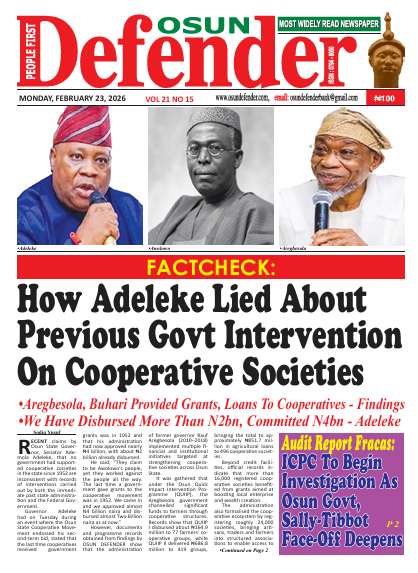LETTER TO THE EDITOR: Press Freedom And Issues At Stake
World press freedom day proclaimed by the United Nation General Assembly in December 1993 is observed every May 3 to further promote press freedom and protect journalists, some of those who lost their lives in carrying out their constitutional duties. It will be recalled that the world press freedom day came into existence after the death of some journalists and photo journalists in suicide bombing in Kabul, Afghanistan. The journalists had gathered to report an initial suicide bombing before another suicide bomber who pretended to be a journalist detonated a bomb which killed several press men.
World press freedom day is a reminder to governments of the need to respect press freedom.
According to the International Federation of Journalist (IFJ), there have been 32 journalists’ deaths in 2018. Although, no death has been recorded in Nigeria, that is why Nigeria was ranked 119th, next below Afghanistan in the 2018 World press freedom index. The world press freedom index shows the level of freedom afforded journalists and news organisations and the government efforts to respect the freedom.
Information gathered across the world reveals that at least, 32 journalists are currently detained in Egypt with 22 of them without charges. Mahmoud Hussein, an Aljazeera journalist has spent more than 500 days imprisoned in Egypt.
Almost 14 Turkey’s respected newspaper were said to have been found guilty of terrorism charges in Turkey because of the country stifling of the media and criminalization of their journalistic works. Over 120 journalists have been jailed since the coup attempt in July 2016, as well as at least 180 media organisations closed down with spurious and baseless accusations of plotting to overthrow the state and terrorism offences.
World press freedom day is a day of support for media which are targets of the restrain or abolition of press freedom.
Therefore, the press freedom entails issues of media and transparency of the political process, the Independence and media literacy of the judicial system and the accountability of state institutions towards the public.









